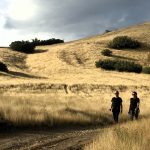
In June and July, only the earliest risers catch the quietest hour. Pre-dawn. First light. Morning’s earliest names belong to those who trade sleep for stillness. A pink sky rises like a whispered promise—renewal, energy, the courage to start again.
I spent the last week going coastal—waking each morning to the sun rising across the water and otherwise utter silence. No traffic, no phones, no clocks. Just the tide, the horizon, and the slow ignition of color. It reminded me how rare it is to meet the day so unhurried, to see the world before it knows it’s being watched.
Henry David Thoreau once wrote, “An early-morning walk is a blessing for the whole day.” He understood what modern research now confirms: waking early gives the body and mind a head start. Morning light, in particular, is potent medicine. It regulates melatonin, sharpens focus, and even helps us sleep more soundly at night. Just a short walk in that first hour leaves fingerprints across the rest of the day—energy steadier, stress easier to manage.
When my family was younger, we’d load up the boat and head for the lake, repeating the old line that “the early bird gets the worm.” What we were really after was smooth, flat water—glass, we called it. For the first hour, often longer, the lake was ours alone. By noon, the surface would ripple with the wakes of others, but those golden mornings were worth the struggle between sleeping in and rising early. Both had their payoff, but only one gave us glass. Summer rewarded those who traded sleep for first light.
Scientists give morning three names: astronomical, nautical, and civil twilight.
Astronomical twilight begins when the faintest stars fade.
Nautical twilight is when sailors can still make out the horizon.
Civil twilight is when we finally see enough to move without artificial light.
Each stage is its own unveiling, reminding us that long before color floods the sky, the shift has already begun. Our lives are like that too—changes stirring in the dark, long before we notice their glow.
As summer tilts into fall, the gift of morning expands. By September, more of us find ourselves stirring in the half-light, caught between sleep and day. By October, we wake in darkness, waiting for the slow reveal of dawn. The seasons invite us to notice what was once reserved for only a few.
Chasing morning light grows trickier as the year winds down. Each day, sunrise slips a little farther away, as if the light itself were reluctant to wake. By late October, dawn arrives an hour later than in midsummer. To keep pace, you can do one of two things: shift with the season, or hold steady.
Shifting means honoring the clock as it changes—sleeping a touch longer, letting your rhythm follow nature’s. Holding steady means rising when you always rise, no matter what, and embracing the quiet before the light comes. Both approaches work. What matters is consistency, a rhythm your body comes to trust.
If you want to meet the sun as it breaks, look up the sunrise time each evening and set your alarm just ahead of it. If you’d rather keep your own cadence, make the darkness a companion—brew something warm, light a candle, read, stretch. Darkness isn’t the enemy of morning; it’s simply the opening act.
A morning routine can anchor us through this shift. Breath, stretch, walk, pray—whatever clears the fog and sets the day on course. The hours before the world fully stirs can be a refuge, a chance to meet ourselves unhurried.
And yet the darkness encroaches. Some mornings it feels heavier than others. Coping means accepting both sides: the softness of light when it comes, and the patience required when it hides. In this way, pre-dawn is more than a time of day—it’s a posture of trust. A willingness to begin, even before the sun shows its face.
And when the light finally does arrive, it feels less like an accident of physics and more like a gift. The reward isn’t just the sunrise itself, but the spirit that grew while waiting. Perhaps that’s why the earliest hours hold such weight—because they teach us not only how to greet the day, but how to greet our lives: alert, attentive, and ready to notice what many will sleep through.
Good morning!





